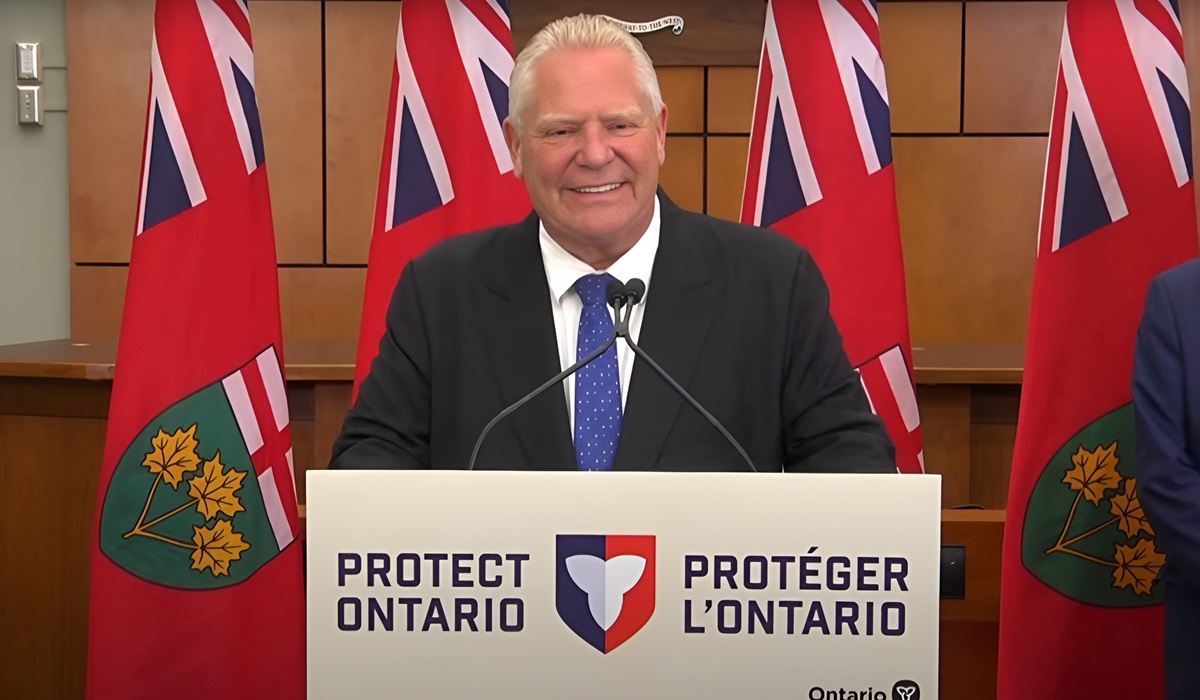Ontario’s New Employment Law: Another Contributor to Making the Province Less Business-Friendly
- Nick Kossovan
- The Art of Finding Work
- Trending News
- August 2, 2025

At a time when the Canadian economy is facing unprecedented challenges, one would expect Doug Ford’s priority to be making Ontario a business-friendly place, attracting startups and expansions to generate much-needed jobs, boost economic growth, and overall prosperity. However, Doug Ford, ignoring the fact that Ontario is surrounded by other provinces and shares a border with the world’s largest capitalist country, is making it harder for businesses to operate in Ontario.
On January 1, 2026, several amendments to the Ontario Employment Standards Act (ESA) will take effect, specifically regarding requirements for publicly advertised job postings. Under the Working for Workers Four Act 2023 (Bill 149), these changes aim to enhance transparency in the hiring process. Updates include mandates to disclose salary or wage ranges, the use of artificial intelligence, and whether the job posting is for an existing vacancy.
Here’s Bill 149’s breakdown:
- Pay Transparency: Pay range must be posted and cannot exceed $50,000 unless the top end exceeds $200,000.
- No Canadian Experience Requirement: Postings and application forms can’t ask for Canadian experience.
- Vacancy Disclosure: Must confirm whether the posting is for a current vacancy or a future hiring opportunity.
- AI Disclosure: Must disclose if artificial intelligence is used to screen or assess applicants.
- Candidate Notification: Employers must inform all interviewed applicants—a key point—of the outcome within 45 days of their final interview.
- Record Keeping: Job postings, application forms, and interview-related communications must be kept for a minimum of three years.
Ford, who’s been acting as Captain Canada against Trump’s tariffs, understands—like any politician with some political savvy—that his career depends on securing votes. Bill 149, which targets only employers with 25 or more employees, is simply Ford’s attempt to counter the threat he feels is posed by the New Democrats by courting Ontario’s working class. Don’t kid yourself, Ford’s goal is to win as many votes as possible from, as of June 2025, the 8.2 million employed Ontarians.
Unsurprisingly, on LinkedIn, the Facebook-like platform where “professionals,” driven by a sense of entitlement, gather to complain about employer hiring practices and the unfairness of the job market, there’s a surge of posts from those who lack foresight to consider how laws and legislation influence where businesses decide to establish or grow applauding Bill 149, especially regarding the requirement to notify candidates within 45 days after their final interview. Are those supporting Bill 149 aware that the legislation limits its scope to formal interviews and excludes initial screenings and resume reviews? In other words, Employers aren’t obligated to acknowledge or tell every candidate who submitted a résumé where they stand in the hiring process.
Bill 149 is a virtue-signalling exercise.
An example:
As of January 1, 2026, in Ontario, but not in the rest of Canada or the US, employers will be legally required to disclose information about their use of AI throughout their hiring process.
Section 8.4 of the Employment Standards Act (as amended) states:
“Every employer who advertises a publicly advertised job posting and who uses artificial intelligence to screen, assess or select applicants for the position shall include in the posting a statement disclosing the use of artificial intelligence.”
Sounds straightforward, right?
The bill’s AI disclosure clause is a potential minefield, with fines of up to $100,000 per conviction for non-compliance. Many employers’ ATS, video interview software, and assessment tools are likely to use AI in some form.
The challenge is that the definition of ‘artificial intelligence’ is so broad that it encompasses nearly everything, from simple ATS keyword filtering to sophisticated ranking algorithms, creating the perfect storm that lawyers will benefit from. Many companies will issue vague, broad notices, which miss tools that qualify as ‘AI’ under the legislation and risk a $100,000 fine. Does the possibility of a $100,000 fine for posting a job ad in Ontario seem welcoming to businesses? The best legal defence is avoidance—why take a chance—hence I envision the number of job postings in Ontario dropping.
Another example:
If an employer is set on hiring only candidates with Canadian experience, they’ll simply select candidates with Canadian experience.
What Bill 149 won’t address, hence why Ontario job seekers will continue to be frustrated, maybe even more so as companies seek more business-friendly jurisdictions outside of Ontario:
- Fake jobs (This should one of the government’s top priorities to eliminate.)
- Reposting the same job. (Employers can post a job, never contact applicants, and keep reposting the job to get their name out there, as well as collecting data.)
- Improve enforcement of existing laws against discriminatory hiring practices, such as those based on gender and age, so that they’re actually enforceable, as they aren’t today.
Setting aside Doug Ford’s courting of Ontario’s working class, I understand that Bill 149’s utopian aim is to create workplaces that are more equitable and transparent, which, despite Ford’s self-serving intentions, is admirable. However, given the current economic uncertainty affecting Ontario and Canada, it shouldn’t be Ford’s priority at this time.
If Ford truly wants to gain the support of the people of Ontario, he needs to position himself as a premier whom Ontarians will come out in droves to vote for, ensuring he continues to lead Ontario; he needs to concentrate on creating jobs, as oppose to passing toothless legislations that are almost impossible to enforce, will result in frivolous complaints filed by disgruntled job seekers employers will have to defend against, incentivizing businesses to pivot to more business-friendly jurisdictions.
Will Ontario introduce legislation that gives a time limit for selected applicants to respond? What about legislation regarding candidates ghosting recruiters and employers? Will Ontario employers cover their liability with the phrase “Only those candidates selected to be interviewed will be contacted” appearing at the bottom of their job postings?
Currently, Bill 149 is being applauded by some. Once the applauders realize that no meaningful change has occurred and that just like the legislations intended to address ageism and other biases have had no significant impact, they’ll likely revert to blaming the government for their job search struggles.
Doug Ford’s best political strategy, one that would create the prosperity all Ontarians desire, is to make Ontario the best place to do business in North America. However, this would require actual work on his government’s part, as opposed to placing virtue-signalling burdens on employers. Correct me if I’m wrong, wasn’t Ford’s slogan for Ontario, “Ontario is Open for Business”?
______________________________________________________________
Nick Kossovan, a self-described connoisseur of human psychology, writes about what’s on his mind from Toronto. You can follow Nick on Twitter and Instagram @NKossovan.








